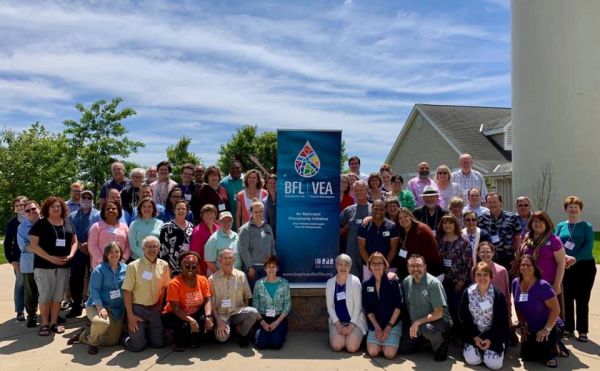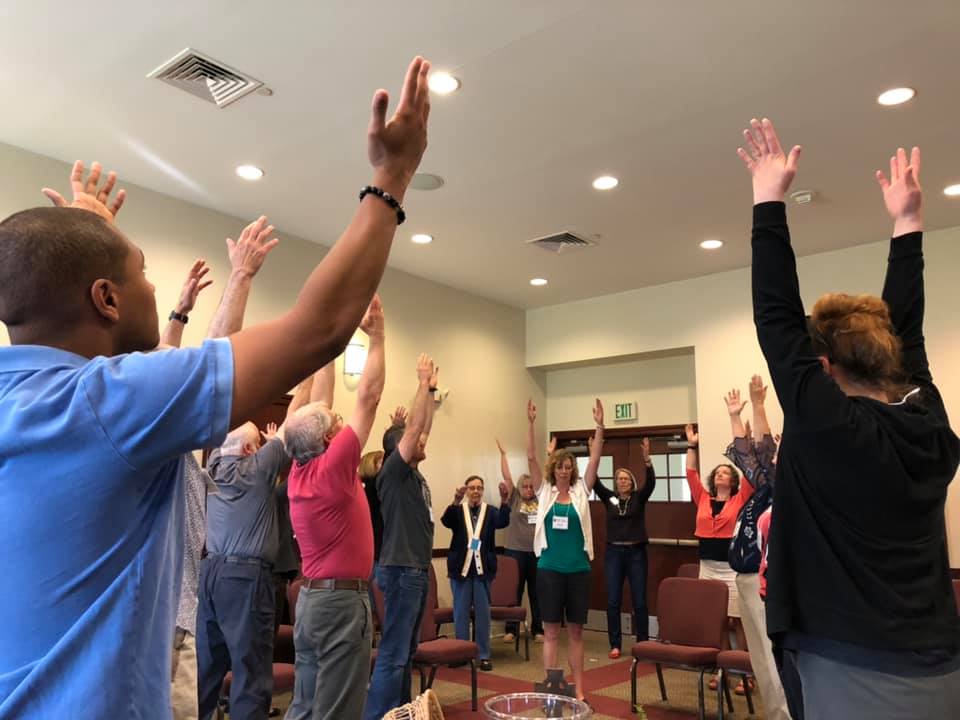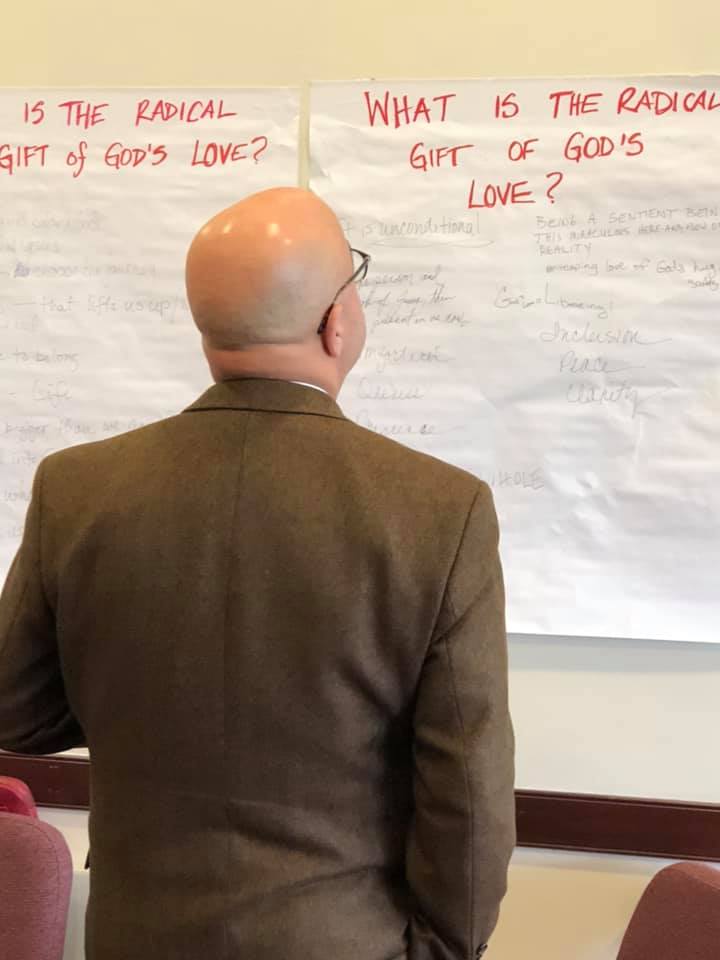Baptized for Life

The following report was written by Ann Marie Jones of St. Phillip's Greenville.
We are “called to lives of meaning and purpose.” This statement aptly describes one objective of Baptized for Life (BFL), an Episcopal discipleship initiative from Virginia Theological Seminary. BFL also seeks to enrich the lives of Christians by equipping them to discern and live out their calling, and to revitalize congregations.
The question begs to be asked: Who are we, and whose are we, as the baptized in Christ? Many of us may not remember our own baptism as we were baptized as infants. While others do, those who were baptized at an older age. Regardless, we have over the years borne witness to the baptism of others: loved ones, our children, grandchildren, friends, and others in the congregation. There are many stories of baptism, and our own story is well worth remembering and sharing with others. What is your story; or that of someone very close to you?

Congregations involved in the Baptized for Life residency recently gathered at the Bishop Claggett Conference Center in Adamstown, MD. Lay and clergy leaders from across the country gathered to launch the beginning of what will be a four-year commitment to expand and equip congregations to live out their lives of meaning and purpose.
The Residency was filled with presentations, prayer, worship, sermons, and scripture. It also had workshops, laughter, fun, good food, sharing, and renewing of our baptismal vows. We talked about the Catechumenate. There were several powerful speakers who shared their stories with us and helped us form a vision of what we could accomplish. We met new friends in Christ, were introduced to new techniques, and learned new lessons. We were being equipped to return to our diocese to share with our church families, and were commissioned to do so.

Some of the highlights of the retreat included:
- Each day started with bible readings and music. The powerful method of prayer, Lectio Divina, was utilized to focus participants and make scripture reading “real” to the individual.
- Bishop Ted Gulick (former Bishop of Kentucky and assistant bishop in Virginia) spoke on the conviction that “Our baptismal identity is a matter of life and death.” He reminded us that as baptized people we have responsibilities, and by not speaking up we were not behaving as truly baptized people. The gifts of Baptism are Hope, Love and Purpose. He quoted the Reverend Tom Long (Presbyterian Minister) who said: “We are not our own but Christ’s; we are called to change and grow to be like Christ; we are called and ordained for ministry; we belong to others in Christ; and our lives together point to God’s coming.”
- Jerusalem Greer regaled us with her talk on covenant living and discipleship, entitled: “Drenched People: Living the way of Love.” She channeled Bishop Curry with his liberating talk about the Jesus Movement. She recommends a rule of life as a means of staying the course of a baptized life. She strongly recommends looking at the “Way of Love” video on YouTube or the Episcopal Church website. As we turn, learn, pray, worship, bless, go, and rest in our commitment to God, we become more of who Christ wishes us to become. She talked about Evangelism. Yes, that dreaded word! We proclaim by Word and example, joyfully sharing the good news. We speak to the lonely, we form relationships; our baptismal covenant is all about relationship. Jerusalem asks us, “Who in our community is waiting to hear Good News?”
- Father Daniel Velez Rivera talked with us about storytelling and leading change in faith communities. He told his story, and relayed the public narrative. He talked about Jesus stories. He said “stories not only teach us how to act, they inspire us to act!” He talked about the Story of Now, and instructed us to think from the places of us, the people of God. He recommends, we ask questions: What do we need? How do we impact the community? What is important to us? Then we should collaborate with others in the community doing similar things.
- One very dynamic presentation was from “Listening Hearts.” Mother Monique Ellison and Frances Sullinger presented this workshop, and their lessons on discernment were truly a treasure. The process of discernment is: 1)Gathering all the things, including your mind, that influence the discernment process. 2) Bringing all these things to your heart. 3) Giving the Holy Spirit access to these things to guide us in the path to go. 4) Then using our imagination, music, art, and scripture to guide us. The Holy Spirit moves, and with our courage to pursue, and the grace to accomplish we will be able to move onward on the path we should go. When we work in discernment we don’t have to take votes, we work in consensus. Then, we take action, we get a plan. Discernment is a tool we have and can use for life.
Tags: Stories from EDUSC